Australians have lost their homes, their retirement, and their peace of mind as a wave of self-managed superannuation funds collapsed without warning.
Canberra couple Simon and Annette Luck face selling their house after losing almost every cent of their $340,000 nest egg. Perth nurse Kathryn Shannon saw her entire $460,000 life savings disappear overnight.
They are among more than 12,000 ordinary investors left devastated after three major superannuation schemes – First Guardian Master Fund, Shield Master Trust, and Australian Fiduciaries Limited – went under.
While everyday Australians thought they were making smart investments, fund directors spent members’ money on Lamborghinis, luxury homes, and escapes overseas.
And now their victims have been left with nothing.
Experts warn these failed schemes are just the tip of the iceberg in Australia’s $4.2trillion superannuation system – where loopholes still put your retirement at risk.
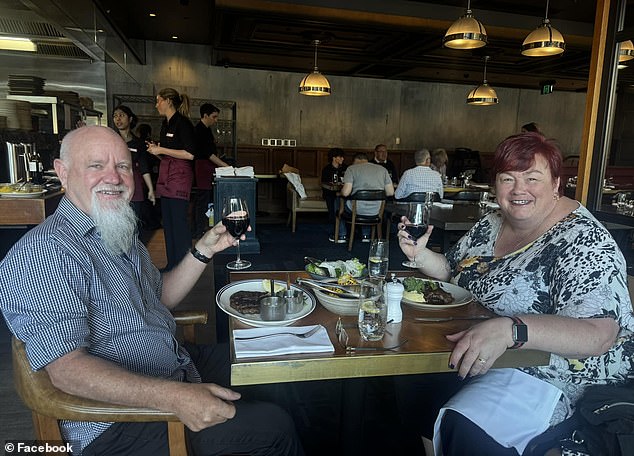
The victims of the superannuation funds collapse include everyday Aussies like Canberra couple Simon and Annette Luck, who lost $340,000 – almost all their retirement savings – after a now-banned financial adviser convinced them to invest with First Guardian Master Fund
Australia’s superannuation savings
Australia’s superannuation savings are one of the nation’s most valuable assets.
The national pool of retirement savings is worth more than $4.2trillion, which is second only to the $11trillion value of residential property.
Super has been compulsory since 1992 and is now even more valuable than the $2.9trillion value of Australia’s 500 biggest companies listed on the Australian Securities Exchange.
Compulsory super contributions rose to 12 per cent as of July 1, making retirement savings the biggest asset for most Australians outside of their home.
For many people who don’t own property, superannuation is by far their biggest financial asset and is essential for a dignified retirement, with Australians unable to get the age pension until they turn 67.
But the collapse of the First Guardian Master Fund, Shield Master Trust and now Australian Fiduciaries Limited has exposed the huge flaws of a system forcing people to put money aside for their retirement.
Close to $1.2billion worth of super has conservatively been lost through these failed schemes, now all in liquidation after legal action from the Australian Securities and Investments Commission.

The national pool of retirement savings is worth more than $4.2trillion, which is second only to the $11trillion value of residential property
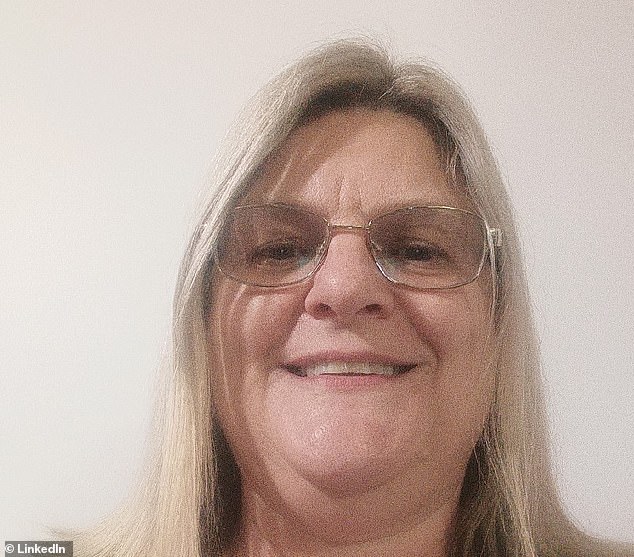
Then there is Perth nurse Kathryn Shannon, who invested $460,000 with a fund linked to Australian Fiduciary Limited
More than 12,000 Australians, mainly with self-managed super funds, have been caught up in devastating collapses of managed investment schemes, which in two cases involved member funds being used to buy Lamborghinis for a fund director.
Then there were instances of directors either buying mansions, fleeing overseas or sending money offshore.
The victims include everyday Aussies like Simon and Annette, who lost $340,000 – almost all their retirement savings – after a now-banned financial adviser convinced them to invest with First Guardian Master Fund.
They are contemplating selling their house, living out of a caravan and cancelling plans to visit relatives in The Netherlands and the UK.
‘Disheartened, dismayed and downright disappointed and let down,’ Annette tells me.
Then there is Kathryn Shannon, who invested $460,000 with a fund linked to Australian Fiduciary Limited.
‘I transferred all of my funds, totalling over $460,000 and representing nearly all my life savings as I don’t own my own home,’ she says.
‘I feel ripped off and the superannuation system is not safe.’
CoreData founder Andrew Inwood, a 30-year veteran of the financial services industry, tells me bad actors in the superannuation sector will always find ways to get around new laws.
‘It’s not people who are good actors who have made a mistake,’ he says.
‘It’s bad actors who are setting out to deliberately exploit the system to take advantage of the fact that people will feel that they’re missing out on some sort of return.
‘Regulation doesn’t change that: putting up more speeding signs doesn’t stop people from speeding; what changes that is more cops on the street, more speeding cameras.’
Royal Commission
The 2019 Royal Commission into Misconduct in the Banking, Superannuation and Financial Services Industry recommended that hawking of superannuation products be banned.
Former treasurer Josh Frydenberg set about implementing Justice Kenneth Hayne’s 76 recommendations.
But as Super Consumers Australia chief executive Xavier O’Halloran tells me, it didn’t stop financial advisers from selling their wares on Facebook, and preying on a fear of low super returns.
‘We’re seeing huge amounts of money flowing out in marketing costs – this seemed to be the business model of some of these managed investment schemes,’ he says.
‘They pump a huge amount of money into different promoter services, who put ads all over social media platforms encouraging people to switch their superannuation to a better fund – driving a lot of fear that people are perhaps in a really bad-performing fund and paying high fees and then switching people into what has been a failed investment.’

Thousands of Australians, mainly with super-managed super funds, have been caught up in collapses of managed investment schemes, which in two cases involved member funds being used to buy Lamborghinis (pictured is a Urus registered to a First Guardian director)
While super funds and managed investment schemes can’t directly advertise, financial advisers can continue to hawk their services and ultimately give bad advice.
‘It’s a pretty easy loophole to get around,’ Mr O’Halloran says.
This has made those with self-managed super funds particularly vulnerable to switching their retirement savings to a dodgy managed investment scheme.
‘You’ve got someone who’s trained as a financial adviser telling them that they’re in a bad investment – naturally they’re going to think about switching,’ he says.
‘We’re really encouraging people who see these ads on social media really just to keep scrolling and not to be talking to these kind of promoters because it’s a very risky business model and it’s seen people lose their retirement savings.
‘It’s not as blatant as selling a bridge – “This is a good investment, take my word for it, it’s a growth investment” – they use all the kind of words and jargon that you might hear from a pretty normal investment option at a superannuation fund.’
Investors promised balanced investments also had their funds put into risky ventures.
Spending on marketing
Trailing commissions have been illegal since 2013, following the passage of Future of Financial Advice laws.

David Anderson in 2020 had bought a $9million Melbourne mansion (pictured)
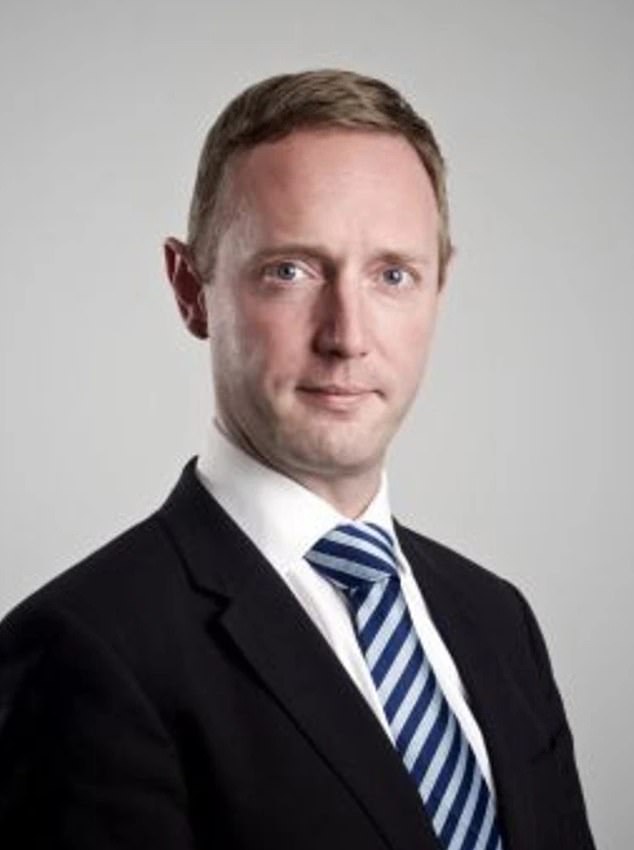
The collapse of First Guardian is leaving 6,000 Australians in limbo with First Guardian Master Fund’s directors accused of moving $242million in funds offshore (pictured is director David Anderson)
But in the worst case, the $505million First Guardian Master Fund paid $40million in marketing fees to Cornerstone Strategic Management, Atlas Marketing and Indigo Group.
A creditors’ report by liquidator FTI Consulting revealed $446million may never be recovered.
The collapse of First Guardian is leaving 6,000 Australians in limbo with First Guardian Master Fund’s directors accused of moving $242million in funds offshore.
David Anderson in 2020 had bought a $9million Melbourne mansion while fellow director Simon Selimaj bought a $548,000 Lamborghini.
ASIC, the corporate regulator, says that, since February 2022, at least 5,800 Australians have invested $480million with Shield Master Fund.
Then there is the case of Australian Fiduciaries Limited, which collectively owes 600 investors $173million which liquidator Matthew Hudson, from SV Partners, tells me could grow closer to $200million.
His creditors’ report noted director Lee Rushton had fled to Malaysia, and had a Lamborghini registered in his name.
‘This is very similar to the First Guardian collapse,’ Mr Hudson says.
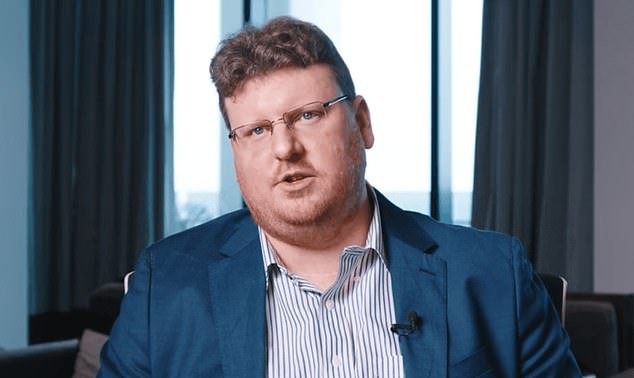
Then there is the case of Australian Fiduciaries Limited, which collectively owes 600 investors $173million. The creditors’ report noted director Lee Rushton had fled to Malaysia
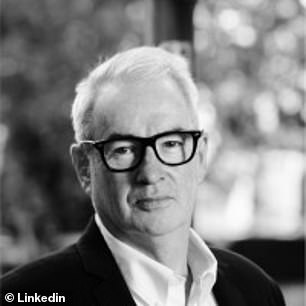
CoreData founder Andrew Inwood, a three-decade veteran of the financial services industry, tells me bad actors in the superannuation sector will always find ways to get around new laws

Super Consumers Australia chief executive Xavier O’Halloran says financial advisers are selling their wares on social media, and preying on a fear of low super returns
The government-run Compensation Scheme of Last Resort, established last year, can pay individuals up to $150,000 if they lose money when a financial company collapses.
But the scheme has limited funding because it’s paid for by finance companies via annual levies.
Each year, the scheme can only pay out a total of $250million across all claims.
Additionally, there’s a cap of just $20million for each part of the finance industry, such as financial advice.
This has led to serious shortfalls.
For example, the scheme recently estimated it would need $70.1million just to compensate victims of bad financial advice.
Mr Inwood says higher levies on financial advisers are likely to be needed to pay out the victims of collapsed managed investment schemes.
‘They don’t have the money so they are going to have to raise another $47,000 per adviser in Australia,’ he says.
In each case, the collapsed managed investment schemes were available on reputable superannuation platforms, giving investors a choice of potential funds, and were even given investment-grade ratings.
‘There’s a string of failures that has gone on here,’ Mr O’Halloran says.
‘Looking at how people ended up in these schemes in the first place is the really critical piece too.
‘In some cases, superannuation funds had these managed investment schemes on their platforms, so basically sitting on their shelves of the supermarket were these toxic investments that people had been encouraged by these financial advisers to sign up to and put their retirement savings in.
‘There’s culpability all down the chain from the super funds to the adviser to the guys that were setting up these schemes and spending the money from them on Lamborghinis.’